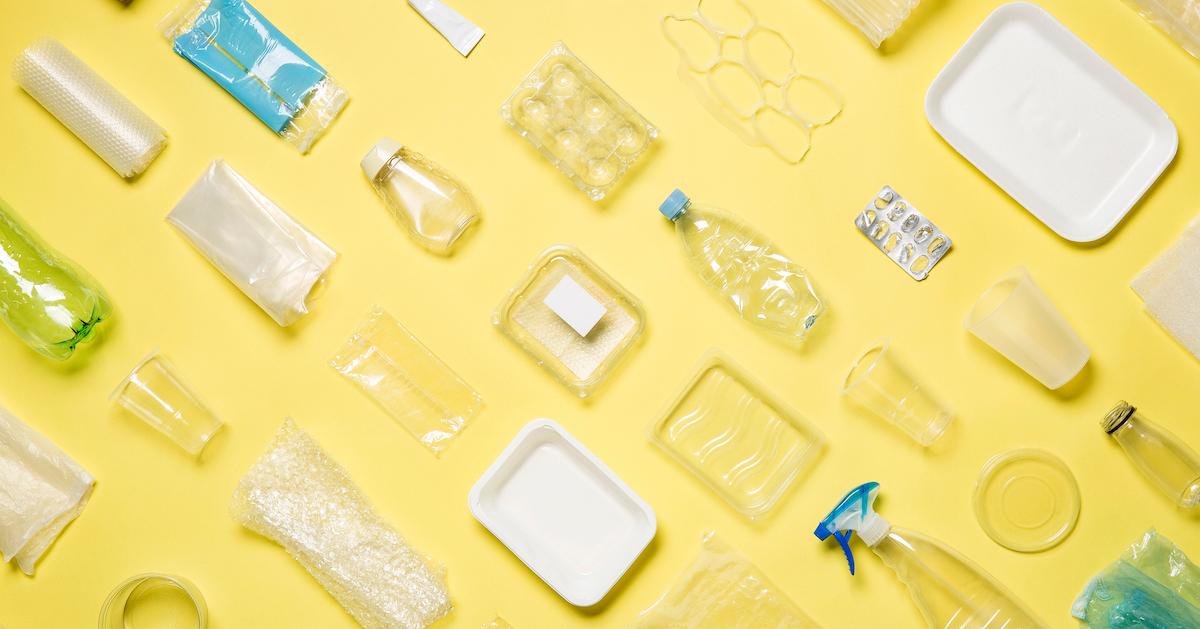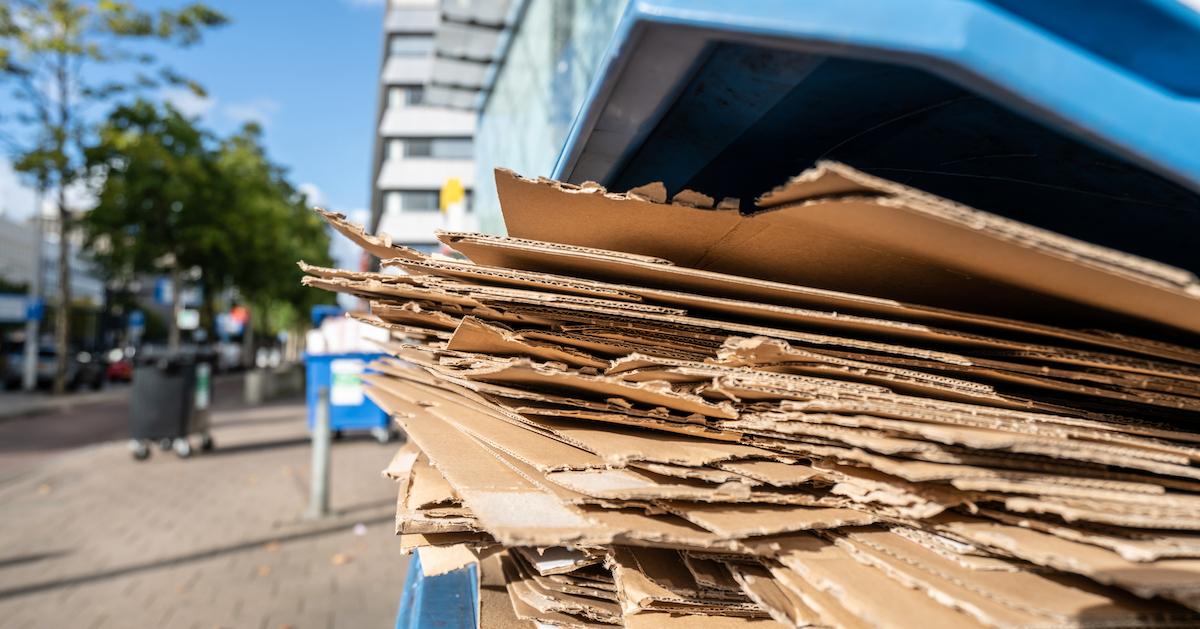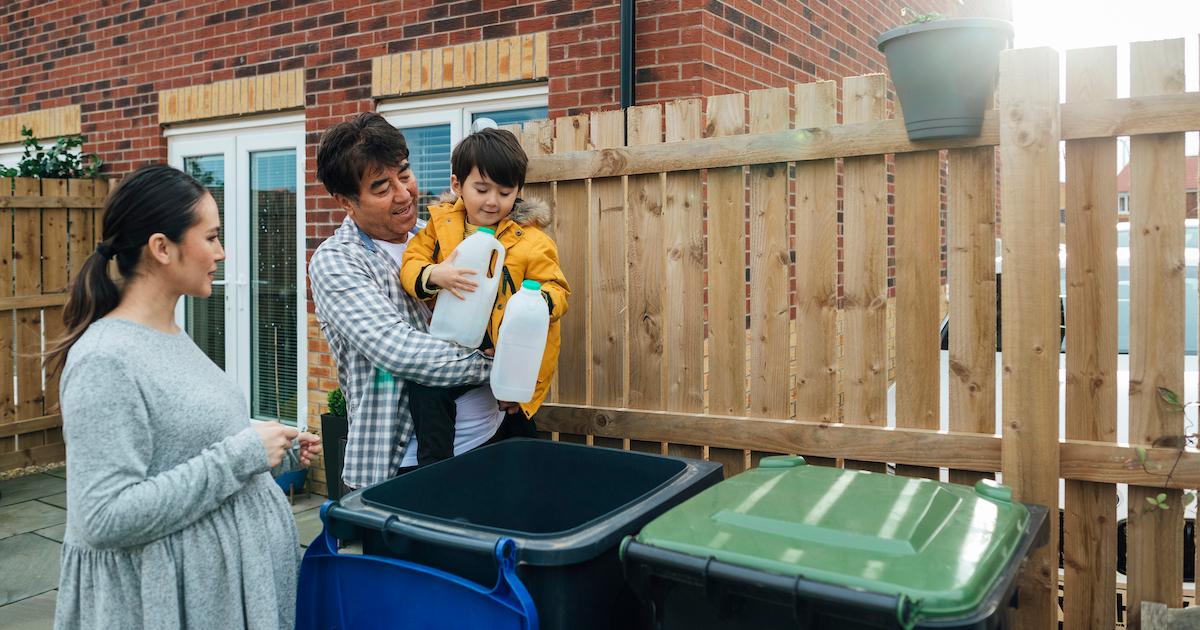Yes, Plastic Recycling Is a Bit of a Scam. Here’s Why We Should Still Do It
Published Jan. 27 2023, 2:56 p.m. ET

Yes, U.S. plastic recycling rates are abysmally low. And yes, recycling plastics only gives them a pretty short new lease on life, since plastic can really only be downcycled, at best. And yes, the plastic recycling industry is kind of a scam.
But still, we should recycle everything that is recyclable.
And that’s not because of the surface reasons that governments or recycling companies would give you when it comes to why we should recycle. (Recycling is good for the environment! It reduces landfill waste! It conserves energy and resources!)
Though you may have doubts, it really is important that we keep recycling — even the skeptics out there. Here are a few real reasons why you should recycle.

More plastic gets recycled than you might think.
You’ve probably seen more than a few headlines about how only 9 percent of plastic created between the 1950s and 2017 has actually been recycled… and you’ve probably heard a few cynical people use that as an excuse for tossing their recyclable waste in the trash can.
But think of all the plastic produced each year — it’s roughly 300 million tons worldwide. 9 percent of that is a lot.
Not to mention, certain types of plastics have much higher recycling rates. For instance, in 2018, the recycling rate of PET bottles and jars (plastic No. 1) was 29.1 percent, and the recycling rate for HDPE bottles (plastic No. 2) was 29.3 percent.
Other recyclable materials have even higher recycling rates.
In 2018, about 46 million tons of paper and paperboard were recycled, giving the material a recycling rate of 68.2 percent, as per the EPA. Other types of paper had even higher recycling rates, such as corrugated boxes, which had a recycling rate of 96.5 percent that year!
In 2018, glass containers had a recycling rate of 31.3 percent, and the total recycling rate for aluminum containers, packaging, and foil was 34.9 percent.
The only way for recycling rates to go up (or even for them to stay constant) is for people to actually put recyclable items in the correct recycling bins. If people rely on these figures as a defense for not recycling, recycling rates will only become even lower.
Not recycling plastic is essentially a vote for the fossil fuel industry.
You don’t want to give the fossil fuel industry more excuses to drill for oil, do you? Well, the less plastic we recycle, the less raw materials there will be for post-consumer recycled (PCR) plastics to be made, and the greater the excuse for the fossil fuel industry to drill for oil to make more new plastic.
By placing your plastics in the blue bin, you are at least trying to support the companies making products from PCR plastics.
Them’s the rules.
In certain areas, it’s actually illegal to throw items that are recyclable in the trash, as it wastes landfill space. For instance, in New York City, businesses can be fined for trashing recyclable items from excess textiles to construction waste.
Yes, the recycling system is imperfect. So is the law. But if you have the extra 30 seconds to wash your takeout container, let it dry, and place it in your recycling bin rather than your trash can, why wouldn’t you?

Simply practicing recycling around others can influence them to follow suit.
Look, we’re not saying recycling is the No. 1 thing you can do for the environment, but it should at least be the baseline. If you wouldn’t litter, you shouldn’t put recyclable items in the trash, especially in instances when it would only take about 30 extra seconds to get it to a recycling bin.
As silly as it sounds, making the effort to recycle can normalize recycling to the people around you, prompt others to ask you questions about recycling rules (we know, they can be confusing), and ultimately influence them to recycle more and trash less.
No one’s saying that recycling is the be-all and end-all solution to plastic pollution — it’s just a small way to make a difference.
On more than one occasion, friends and acquaintances have rolled their eyes at me for going slightly out of my way to recycle something, telling me that this tiny action can’t make a difference.
Colleen Patrick-Goudreau, a vegan and environmental activist known as the Joyful Vegan, has a simple response to defeatist attitudes like this: “Everything we do has an impact on something or someone else. It’s not that we CAN make a difference in this world. It’s that we DO make a difference. The question is: do we want that difference to be negative or positive?”
The average U.S. resident produces 4.9 pounds of municipal solid waste per day, according to the EPA. That’s more than 1,780 pounds per year — certainly enough to make a difference when it comes to clogging our nation’s landfills. Attempting to recycle your recyclable trash can certainly make a positive difference, especially when you add everything up.
You're too old to be making excuses.
No matter what your justification is for not recycling, in truth, it probably comes down to laziness. If you are old enough to read this, you are probably old enough to take time to recycle most of your recyclable waste. Stop making excuses — if kids can recycle, so can you. And committing to always doing so may even make you feel good.
If you are sick of low recycling rates, support anti-single-plastic legislation.
Recycling is not going to get us out of the plastic pollution crisis, but it’s definitely going to help. Even more important, however, is getting more regions to pass single-use plastic bans. We’ve seen these everywhere from California to the entire country of Canada — and we need more. Look up legislation for your area, and contact your local lawmakers, urging them to support these bills.